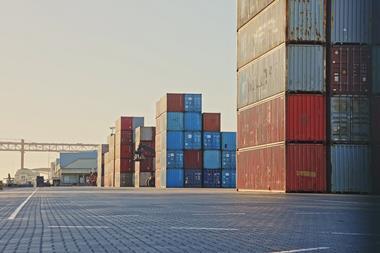Things are “going well” for air cargo, delegates at the World Cargo Summit in Bangkok on January 30 were told.
Steve Saxon, a partner with McKinsey who leads its Asia Pacific airlines practice, outlined four reasons why the sector is buoyant despite an increasingly fraught world situation, but also signalled some concern.
Principal among the reasons to be cheerful is that “demand is incredibly resilient”.
Growth overall, he said, had come down to low single figures but whilst it would be persistent, it was not going to be in the 5%-10% bracket.
Counterintuitively geopolitical disruptions such as the conflict in the Middle East and the Houthi missiling of Western ships had served to underline air cargo’s usefulness in moving needed goods.
“The demand side is supported by disruption,” Saxon told the Summit. “For all of these durable reasons, we are optimistic.”
Another reason for positive expectation is the ongoing and, in Saxon’s words, “seriously underestimated” e-commerce boom.
The driver here is what he repeatedly termed “huge explosive growth” generated by Chinese internet retailers such as Temu, Shein and Alibaba.
The boom has led to a situation where there are 8bn orders a day, he reported, of which 16% are moved cross-border.
In China, this has led to the equivalent of some seventy freighters a day just for e-commerce.
This was corroborated from the podium by Wilson Kwong, chief executive of cargo handler Hong Kong Air Cargo Terminals Limited (Hactl), who reported cargo growth at Hong Kong Airport for last year of 3.2% to 4.3m tonnes with “a lot of growth in the fourth quarter”.
“What is really driving that is e-commerce,” he said. Kwong also stressed this is not a one-off blip but a structural shift as high-street shopping activity declines.
“Longer term the prospect of growth is definitely positive,” Kwong added.
A lengthier account of this comes from Thomas Yu, director global hub operations & product development, Cainiao Network/Alibaba Group.
Quoting Chinese government statistics Yu, who tellingly brands Alibaba “a global company with a lot of room to grow”, reported 132bn pieces moved last year by China's parcel firms of which 3.1bn are going overseas.
What is interesting, and it’s another sign of how the world has changed, is this is all done in China by Chinese companies, the Fantastic Four as Yu referred to them: Shein, Temu, TikTok Shop and Alibaba.
Even if e-commerce is effectively the new norm there are some frustrations and concerns within it.
One which might be a problem longer term is the lack of reliable numbers. Because e-commerce comprises small parcels, which are consolidated with other types of cargo, no one knows how much of it is e-commerce proper. Everyone has an estimate but there is no defined consensus.
Saxon did signal some concerns as did others about this honey pot.
“We all need to watch out for what happens with regulation,” he said pointing out that the European Union has recently required import taxes to be paid.
The US is still allowing shipments without such taxes but that might change, he added.
Despite that, there is a general feeling more capacity is needed as the lack of it might end up being a problem.
One of the concerns flagged by Martin Drew, chief strategy & transformation officer, Atlas Air Worldwide, is the limit capacity could become for e-commerce.
Temu is shifting between 1,500 and 2,00 tons daily and the expectation is it will be moving 5,000 tons daily by year's end.
That’s the equivalent of 50 747s a day assuming they can get the planes and staff to process it all.
On top of this, there is capacity coming back but not necessarily where it is needed nor in the right hands.
Europe, Africa and the Americas have returned to normal but Asia is where passengers remain cautious, which limits belly capacity.
“We do see significant supply side still (to) come in,” Saxon said before adding some shipping lines had been ordering planes “but not knowing what to do with them”.
This means yields are likely to remain flat. Currently, they are 30% above where they were in 2019 but costs such as fuel are 20% up on the same year.
This is not the only problem the industry has to confront, Saxon said, before mentioning digitalisation - or the lack of it - and the real headwind of sustainability, although he noted progress on both.
On the former Saxon was blunt saying the sector was “still in its infancy” and maybe as much as 10 years behind the passenger side.
Drastic though that sounds, he acknowledged the e-bookings were “finally starting to pick up” whilst urging the industry to make more of the other opportunities it brings such as better tracking, improved operations and even “predictive maintenance”.
The other issue where more action is needed is sustainability. This is a bigger issue than just catering to customers who want to buy greener shipping products - some 60% do according to Saxon - but it is also one of economic need.
Emissions are 435 kg per ton-kilometre for goods moving in a plane but less than 100 kg when the same goods go in a container.
“This is what is driving the longer term modal shift,” said Saxon. “Shippers not only have cost pressures but many are signed up to targets.”
https://www.aircargonews.net/monthly-exclusive/survey-air-cargo-optimistic-for-the-year-ahead/















